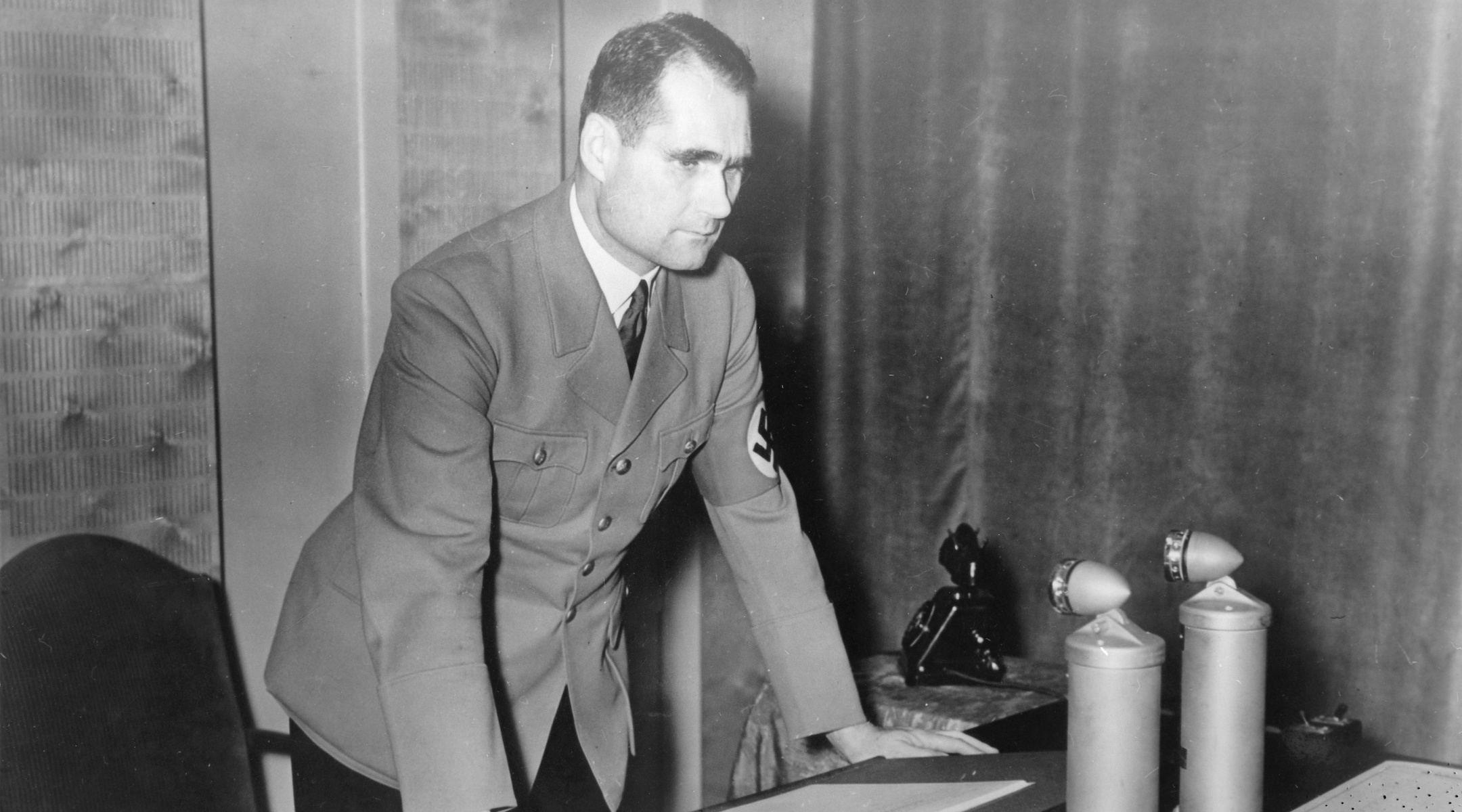Rudolph Hoess, former commandant of the Oswiecim death camp, boasted before the International Military Tribunal today that he had organized the camp so efficiently that most of the 2,500,000 persons murdered there between the Summer of 1941 and the Autumn of 1944 never knew that they were going to their death.
Hoess, who is to be taken to Poland shortly to be tried as a war criminal, was called to testify by counsel for Ernst Kaltenbrunner, former chief of the Nazi Security Police. He told the court that in the little over three years that he commanded Oswiecim 3,000,000 persons died there, of whom almost all were Jews. About 500,000 died of starvation and diseases, while the others were gassed.
Of the Jews, Hoess said, 100,000 came from Germany, 400,000 from Hungary and the others from all occupied European countries. Although some of the adults who arrived at Oswiecim were sent to forced labor, all children were immediately destroyed, he testified.
Hoess related how in the Summer of 1941 he was told by Heinrich Himmler, Gestapo chief, that he was being assigned to Oswiecim to carry out Hitler’s order for a final solution” of the Jewish problem. By “final solution,” Hinmler explained, as meant the total extermination of all European Jews.
Before assuming his duties at Oswiecim, Hoess continued, he visited the death camps at Tremblinka and other places to observe how they were operated. He found Tremblinka badly organized, he said. It was too small for the number of people to be gassed and the people destined for extermination were aware of their fate.
At Oswiecim, its former commander explained, he arranged it so that the persons to be killed thought that they were entering a shower bath, instead of a gas chamber. He also introduced the use of “Cyclone B” gas, which, he said, was more effective than the monoxide gas used in Tremblinka, and caused death in three to fifteen minutes.
JTA has documented Jewish history in real-time for over a century. Keep our journalism strong by joining us in supporting independent, award-winning reporting.
The Archive of the Jewish Telegraphic Agency includes articles published from 1923 to 2008. Archive stories reflect the journalistic standards and practices of the time they were published.




